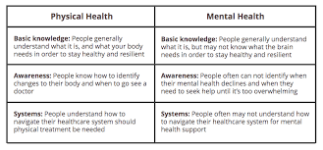In today’s highly competitive sports world, athletes are pushed to their physical limits. Training regimens focus relentlessly on speed, strength, endurance, and technique. But is this obsession with physical fitness overshadowing a crucial element of athletic success — mental fitness?
The Physical Fitness Obsession
For decades, coaches, trainers, and sports scientists have poured resources into optimizing athletes’ physical conditioning. The results speak for themselves: records are broken, injuries are minimized, and peak performance is achieved. The emphasis on physical fitness is undeniable — it’s the foundation for almost every sport.
Yet, there’s a growing sense that mental fitness is being left behind. Athletes face immense pressure, anxiety, and burnout, and recent high-profile cases of athletes taking breaks or speaking out about mental health struggles highlight a glaring problem.
Why Mental Fitness Matters
Mental fitness includes resilience, focus, emotional regulation, and coping with stress. Without these, an athlete can be physically prepared but mentally fragile, leading to poor performance and long-term health issues. Sports like gymnastics, tennis, and football demand not just physical prowess but mental toughness.
Moreover, the stigma around mental health in sports has only recently begun to fade. Athletes are often expected to be “tough” and “unbreakable,” which discourages many from seeking help or even acknowledging mental struggles.
Is the Sports World Changing?
Some teams and organizations are now integrating sports psychologists, mindfulness training, and mental health support into their programs. These changes suggest a shift towards valuing mental fitness. However, critics argue it’s not enough — mental fitness remains an afterthought, secondary to the physical.
The Controversy: Are Coaches and Organizations Doing Enough?
The controversy centers on whether sports programs truly prioritize mental well-being or if mental health initiatives are merely lip service. Some say that the sports industry, driven by performance and profit, will never fully address mental fitness until it affects results on the scoreboard.
Others believe the narrative is changing and that mental fitness will soon be as central as physical training.
What Fans and Athletes Are Saying
Athletes themselves are increasingly vocal. Stars like Naomi Osaka and Michael Phelps have openly discussed their mental health struggles, sparking important conversations worldwide. Fans are split — some applaud these revelations as brave and necessary, while others question if focusing on mental health excuses underperformance.
Where Should the Balance Lie?
Is physical fitness still king in sports, or is it time to elevate mental fitness to equal status? Can a new balance improve athlete well-being and performance, or is mental fitness destined to remain a secondary concern?
The Physical Fitness Obsession
For decades, coaches, trainers, and sports scientists have poured resources into optimizing athletes’ physical conditioning. The results speak for themselves: records are broken, injuries are minimized, and peak performance is achieved. The emphasis on physical fitness is undeniable — it’s the foundation for almost every sport.
Yet, there’s a growing sense that mental fitness is being left behind. Athletes face immense pressure, anxiety, and burnout, and recent high-profile cases of athletes taking breaks or speaking out about mental health struggles highlight a glaring problem.
Why Mental Fitness Matters
Mental fitness includes resilience, focus, emotional regulation, and coping with stress. Without these, an athlete can be physically prepared but mentally fragile, leading to poor performance and long-term health issues. Sports like gymnastics, tennis, and football demand not just physical prowess but mental toughness.
Moreover, the stigma around mental health in sports has only recently begun to fade. Athletes are often expected to be “tough” and “unbreakable,” which discourages many from seeking help or even acknowledging mental struggles.
Is the Sports World Changing?
Some teams and organizations are now integrating sports psychologists, mindfulness training, and mental health support into their programs. These changes suggest a shift towards valuing mental fitness. However, critics argue it’s not enough — mental fitness remains an afterthought, secondary to the physical.
The Controversy: Are Coaches and Organizations Doing Enough?
The controversy centers on whether sports programs truly prioritize mental well-being or if mental health initiatives are merely lip service. Some say that the sports industry, driven by performance and profit, will never fully address mental fitness until it affects results on the scoreboard.
Others believe the narrative is changing and that mental fitness will soon be as central as physical training.
What Fans and Athletes Are Saying
Athletes themselves are increasingly vocal. Stars like Naomi Osaka and Michael Phelps have openly discussed their mental health struggles, sparking important conversations worldwide. Fans are split — some applaud these revelations as brave and necessary, while others question if focusing on mental health excuses underperformance.
Where Should the Balance Lie?
Is physical fitness still king in sports, or is it time to elevate mental fitness to equal status? Can a new balance improve athlete well-being and performance, or is mental fitness destined to remain a secondary concern?


